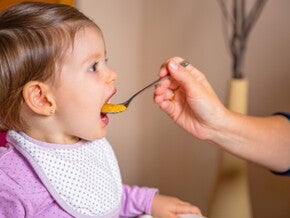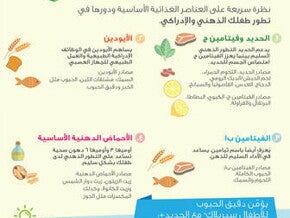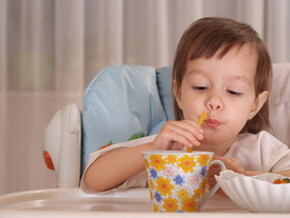
Getting the Picky and Selective Child to Eat
Q1: Is it natural for the child to be selective? What are the reasons? Is this something to worry about?
Difficulty and selectiveness in eating is a period experienced by the majority of children between the age of 1 and 3 years. Many children in this age refuse new foods and ask for the same food over and over again. Their interest in the outside world and all that is going on around them also increases. They are distracted from food and their desire to eat decreases. It is a temporary phase the children experience. Selectiveness is a period which grows with time. It is a way to show their independence and personality.
Do not worry as long as they are active and lively and growing according to their age. This is evidence that they are getting the food they need.
The common reasons are:
• Teething can lead to different eating habits, because the child loses his appetite and solid food may cause him pain.
• The growth of swallowing muscles or congenital problems. In this case, children are not able to swallow and some may find it difficult to chew food.
• Emotional shocks, such as a change of house, the birth of a baby, the child's illness, or the occurrence of a death in the family.
• Fear of new food or increased sensitivity to food. In this case, all of the parents' attempts fail to address their child's eating problem.
The typical behaviors of selective children when it comes to food include:
• Eating food in little quantities.
• Accepting only a few kinds of food.
• Refusing to taste new kinds of food.
• Meal times are interrupted and long.
The potential dangers to children from continuous food selectivity:
• The variance in the meals they get.
• The consumption of small amounts of fruits, vegetables and fibers.
• The consumption of small amounts of some vitamins and minerals.
• Weak growth.
• Low cognitive development.
• Losing weight and not gaining extra weight.
• Fatigue and lack of energy.
• Illness and frequent contagion.
Q2: How does the mother know that her child's nutritional needs are met? How can she encourage him to eat his food and try new meals?
The nutritional needs of children at this stage match the needs of adults but in smaller quantities.
In order to be sure your child gets diversity in his food, his nutritional system should consist of the five food groups in the food pyramid: starches and grains, vegetables, fruit, milk and dairy products, meat and legumes. You can turn to your child's doctor or dietitian to get the necessary follow-up.
It is difficult to determine nutritional needs as this amount varies from one child to another, and also depends on the child's appetite, growth rate and level of activity. For example, little children usually grow quickly. A child at the age of 6 months gains 1kg of weight every 8 weeks, while a child at the age of 18 months grows slowly and may need 6 months to increase his weight by one kilogram only. That's why children older than 18 months do not eat too much because they do not need a lot of food. Check the growth and development of your child with his doctor, especially in regard to his height.
Here are some tips to help you deal with your selective child and make him accept new food:
• Offer him the new food in small quantities at the start of his meal when he is hungry.
• Offer one new type of food together with your child's favorite food every time.
• Try the new food yourself first and let him help you in buying the food and preparing it afterwards.
• Invite your child's friends from time to time to eat with him as many children eat well within a group.
• Offer him a decorated dish containing multiple colors and shapes.
• Offer him water or milk in a special cup with a drawing of his favorite cartoon character.
• Make sure he is already hungry, and avoid giving him snacks and juices just before the main meal.
• Secure some calm before the meal. The child eats better when he is undisturbed.
• Give him the opportunity to eat himself, regardless of the mess he might cause. After all, this is the age of independence.
• Take a neutral position towards his food behavior. Avoid criticism, motivation and compulsion.
• Be keen to encourage your child if he eats a new food type. Encouragement stimulates him to eat.
• Never force him to eat. He is fully aware of when he feels satisfied. We should learn from our children the amount of food that should be eaten and when to stop, because they are well aware of when they are hungry or satisfied.
Children's tastes change every day. Don't despair with the introduction of new meals to your child. The dish that he rejects today will surely be loved and wanted later.
Increasing feeding for the children or forcing them to eat all the food is not recommended. If the mother insists that the child should finish his food, this of course will encourage excessive eating and gaining weight or even cause him to hate some food items which he was forced to eat.
Among the common mistakes made by parents is providing children with sweets and candies when they refuse to have basic dishes. These light and unhealthy snacks start replacing the main dish. It is better not to give the child anything to eat before he feels hungry, and then provide him with the main dish.
There is no golden rule for the best way to make your stubborn child eat what you want him to eat. But it is important that you do not feel anxious or tense. Always remember that during childhood, the child craves information. So you can start to teach him healthy eating habits and guide him to the necessary and more appropriate food for his health. It is very easy for a child to acquire these habits during this early age rather than later.




















